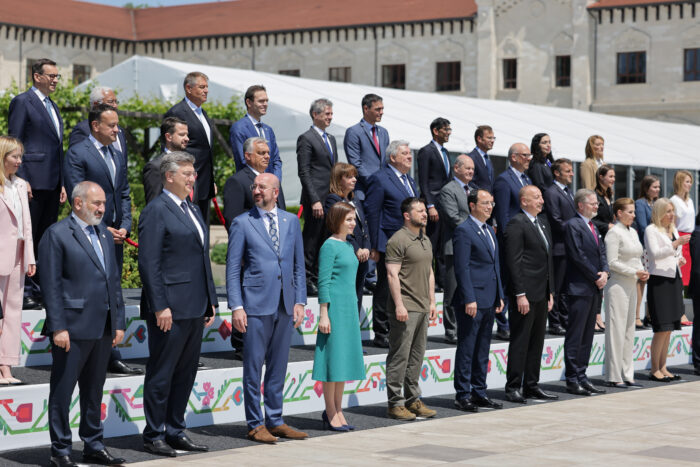The Progressive Post
Europe in times of wars

In these times of wars, Europe will have to reinvent itself if it wants to have a future. Increasing Europe’s capacity to define and implement its own strategy in the face of the major conflicts of our time will be key.
In the war in the Middle East, we need to be firm to disable a terrorist organisation like Hamas, but equally firm to protect the Palestinian civilian population and to force, within the multilateral framework, the only solution that can give them hope and justice and prevent the emergence of new Hamas: two democratic states, co-existing in Israel and Palestine.
To contain the risk of escalation in the Middle East, at regional, international and domestic level it would be a mistake to equate Hamas’ attack on Israel with Russia’s attack on Ukraine, as these are conflicts of a completely different nature. Putin’s Russia has an agenda of expanding its sphere of influence not only towards the borders of the European Union, but also in other parts of the world, maintain its status as a ‘great power’.
At the same time, coups d’état have taken place in the Sahel, where the Russian (and Chinese) interference is clearly visible. However, thinking the status quo antes of post-colonial European influence could be maintained would be an illusion, as it was too centred on resources and European interests. The only solution is to start from a genuine partnership with African countries and their regional organisations, focused on sustainable development, and building representative and participatory democratic systems, while also giving them a greater say in the multilateral system.
Avoiding strategic positioning errors in the Middle East and Africa is also crucial if Europe is to have more allies in its response to Russia’s invasion of Ukraine. The integration of Ukraine, Moldova and the Western Balkans has become a political and moral imperative, but what is at stake is the reorganisation of the European continent into four circles: the non-members of the European Union, who do not want to be members and those who do, plus the members of the EU who want to deepen integration and those who do not. Today, there are strong reasons for reforming the European Union, which may also require some specific changes to its treaties regarding its capacity to decide and act as a political and geo-political entity.
Against the backdrop of the US-China strategic rivalry, Europe must resist global decoupling and fracture and counter these tendencies with three fundamental processes: multiplying partnerships with various parts of the world, updating the multilateral system with clear reform proposals for the summit of the future in 2024 and strengthening the European Union’s strategic autonomy. Strengthening the strategic autonomy is underway with the definition of the EU’s priorities and rules in the energy, environment, health and digital areas, but that is not enough. It needs to be accelerated by building new production and investment capacities. With this purpose in mind, Europe should adapt what it has invented to deal with the pandemic: a European budgetary instrument based on debt issuance and new own resources, complementing what national budgets cannot do because they are limited by the common discipline rules of the euro area. Otherwise, new and profound regional and social differences will emerge over the energy and digital transition.
This new European investment capacity will be decisive for the public goods that can only be provided at the European level, such as top-level research, a European electricity network, a public digital network, a European health union, a European public procurement platform, European security and defence arrangements and a coordinated European position in global fora. These new European public goods, a European citizenship with more content and a European democracy with more participation should be at the centre of a reformed European Union. All the surveys of the European population give an unequivocal result: a clear majority, in all countries, want a stronger Europe for precisely this reason.




